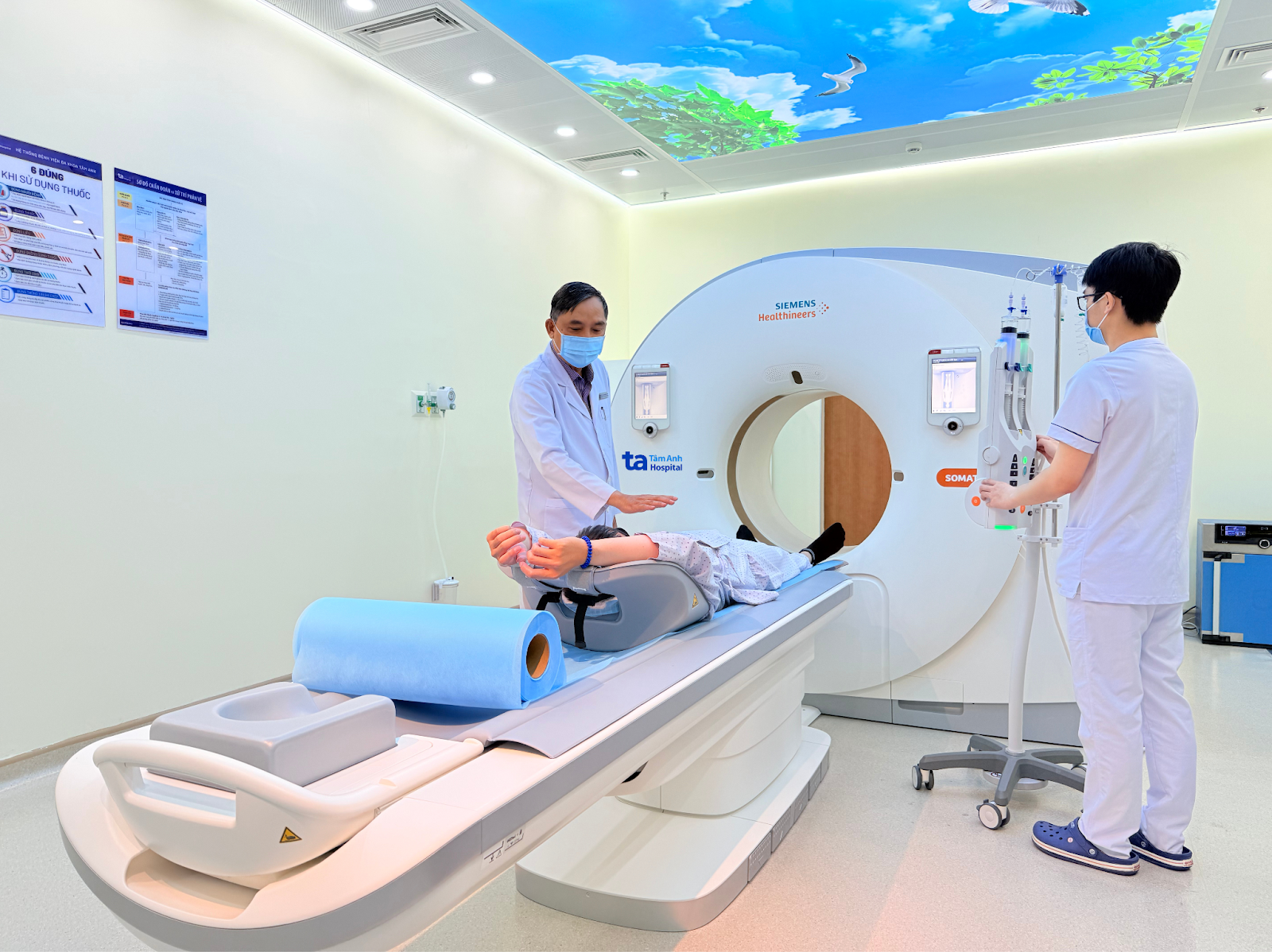The occipital nerves consist of three main branches: the greater occipital nerve (GON), the lesser occipital nerve (LON), and the third occipital nerve (TON). These nerves originate from the C2-C3 vertebrae and are responsible for transmitting sensory signals from the neck to the back and top of the head.
Dr. Nguyen Huu Khanh, from the Department of Neurology at Tam Anh General Hospital in Ho Chi Minh City, explains that occipital neuralgia (Arnold's headache) is a rare type of headache that is often mistaken for migraines or tension headaches. It typically occurs when one or more occipital nerve branches are compressed or irritated. The majority of cases involve the greater occipital nerve. When these nerves are damaged or compressed, patients experience intense, stabbing pain, like an electric shock, radiating from the neck to the head, and pain when lightly touched or combing their hair.
Dr. Khanh points out 6 common causes of this condition.
Poor posture when sitting or lying down
Habits such as working with your head bent forward, using pillows that are too high when sleeping, and constantly looking down at your phone can strain and tighten the neck and shoulder muscles. This tightness can compress the branches of the greater and lesser occipital nerves, leading to a dull ache or sharp pain from the neck to the top of the head. Bending the neck puts pressure on the neck muscles, compressing the nerves that pass through this area. Prolonged bending can cause inflammation and characteristic pain behind the neck, radiating to the head, accompanied by numbness and tingling of the scalp.
Cervical spondylosis
According to Dr. Khanh, this cause is common in middle-aged and older individuals with chronic pain in the back of the head. Aging causes wear and tear on the discs and vertebrae in the neck over time, leading to cervical spondylosis. Bone spurs, herniated cervical discs, or spinal stenosis can directly compress the nerve roots or indirectly alter the mechanics of the neck and shoulders, putting pressure on the occipital nerves. This not only causes neck pain but also leads to stabbing pain in the back of the head that radiates to the forehead. This pain can persist as a dull ache, sometimes accompanied by neck stiffness and reduced flexibility when turning the head.
 |
Multi-slice CT scans help doctors detect degeneration, injuries, tumors, or other abnormalities compressing the occipital nerves. Photo: *Tam Anh General Hospital* |
Neck and shoulder injuries
Strong impacts from traffic accidents, falls, or sports injuries can directly damage the occipital nerves. The pain may not appear immediately after the injury but can develop after a few hours or days. Dr. Khanh notes that some individuals experience severe, prolonged headaches and scalp numbness even after minor neck impacts. This is a sign that requires prompt neurological examination to rule out blood clots, structural damage to the cervical spine, or nerve damage.
Neck and shoulder muscle strain
Prolonged stress, sleeping in the wrong position, carrying heavy loads on the shoulders, or overexertion can cause stiffness in the neck, shoulder, and back muscles, leading to compression of the occipital nerves. This is a common cause of occipital neuralgia in young people, especially office workers, students, and those who work in stressful environments or have sedentary lifestyles. Patients often feel heaviness in the neck, followed by episodic headaches, accompanied by scalp numbness and discomfort when lightly touched.
Metabolic and vascular diseases
Gout, diabetes, lupus erythematosus, or vasculitis can affect the structure and function of peripheral nerves, including the occipital nerves. These diseases reduce circulation, increasing the risk of inflammation or nerve damage. Occipital neuritis can also occur due to herpes zoster virus infection (which causes shingles), rheumatoid arthritis affecting the neck joints, or complications from autoimmune diseases.
Dr. Khanh notes that these causes, although less common, are worth noting, especially in individuals with chronic underlying conditions. If headaches persist without a clear cause and are accompanied by systemic symptoms such as fatigue, weight loss, and low-grade fever, further testing is needed to determine the exact cause.
Tumors or congenital malformations in the neck
In rare cases, occipital neuralgia can be caused by serious conditions such as neck and shoulder tumors or meningeal cysts, where brain tissue herniates into the cervical spinal canal, compressing the nerves. Patients often experience more severe symptoms such as persistent headaches, loss of balance, limb weakness, or difficulty swallowing or speaking. Some congenital abnormalities such as torticollis, cervical scoliosis, and occipital-cervical bone malformations can also irritate or compress the nerves.
According to Dr. Khanh, patients should consult a neurologist if they experience sharp pain in the back of the neck radiating to the head, numbness or burning of the scalp, recurrent or persistent pain, especially if the pain is accompanied by sleep disturbances, dizziness, or prolonged neck stiffness. Early examination and diagnosis can help rule out dangerous causes, treat the underlying condition, and manage symptoms.
To diagnose occipital neuralgia, doctors may perform a physical exam, palpate the occipital region, and conduct imaging tests such as X-rays, MRIs, or CT scans of the neck. Depending on the cause, patients may be treated with pain relievers, muscle relaxants, local steroid injections, physical therapy, posture correction, or surgery if necessary.
Phuong Pham
| Readers can submit questions about neurological diseases here for doctors to answer. |












